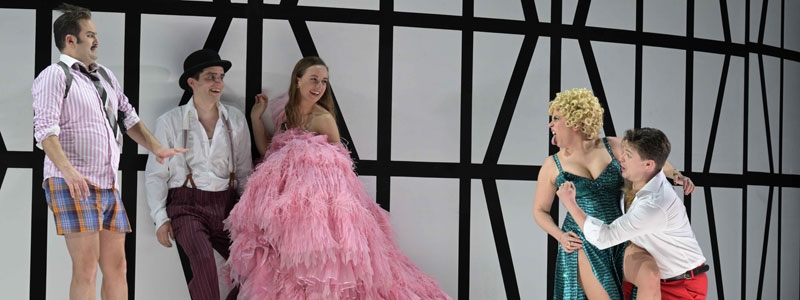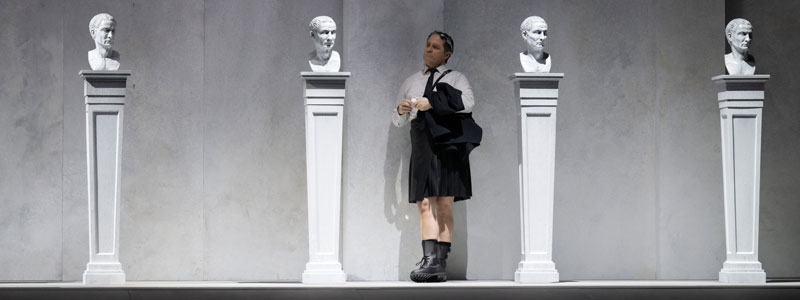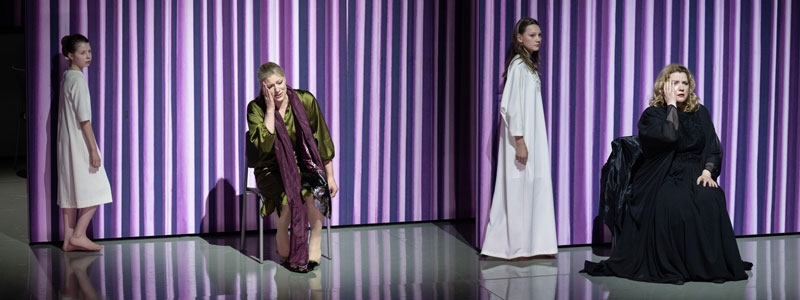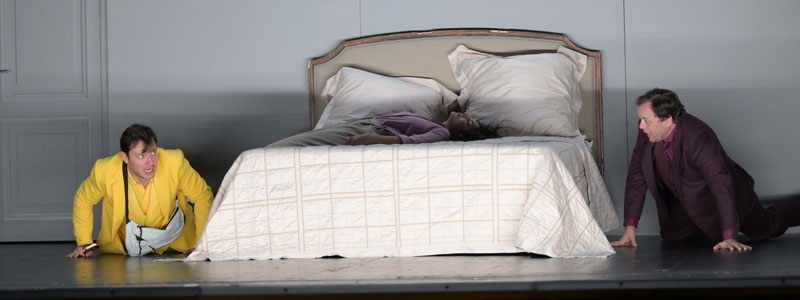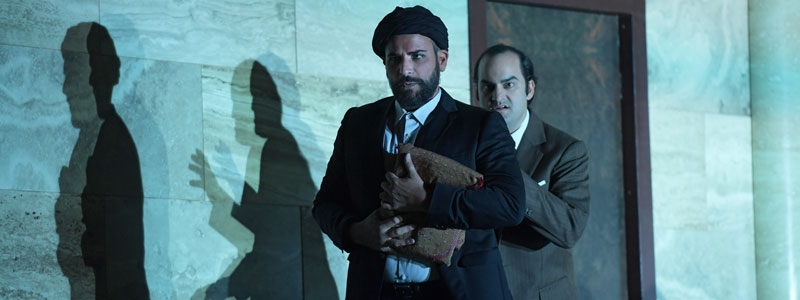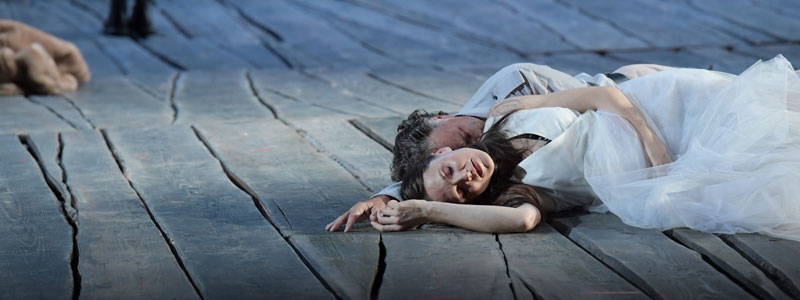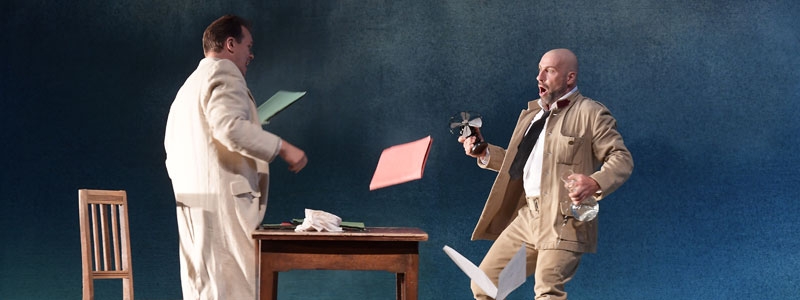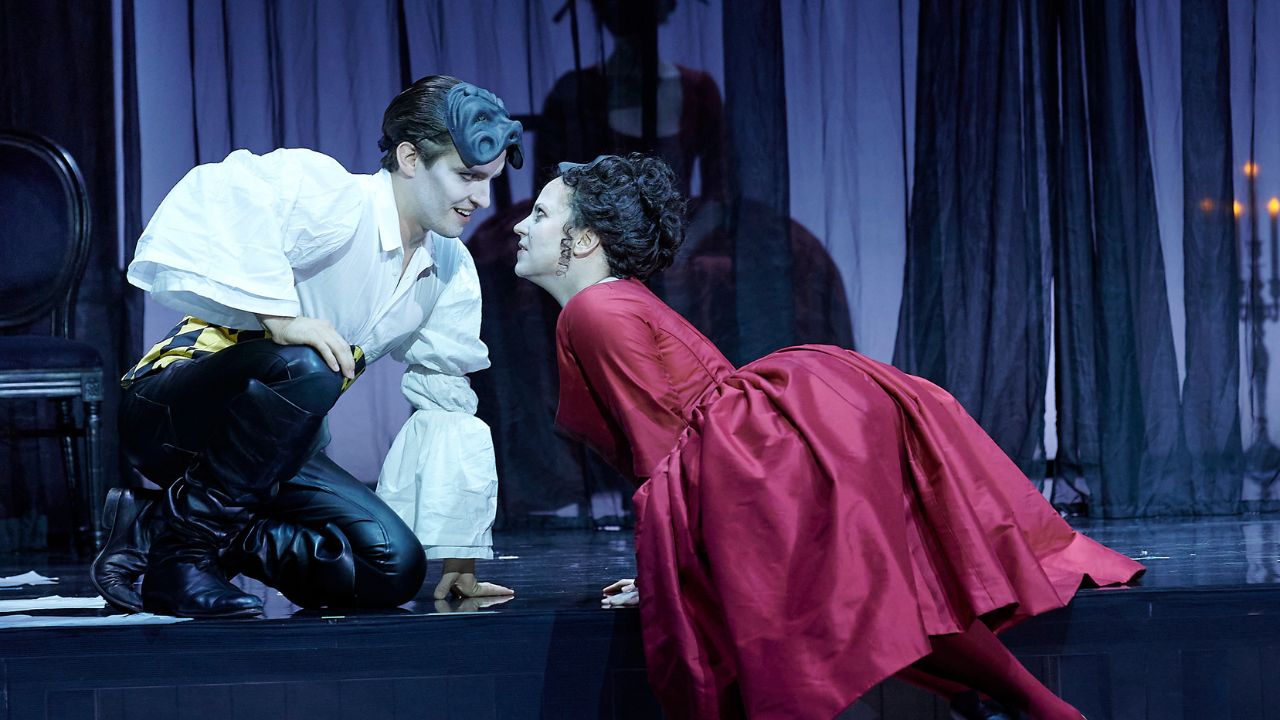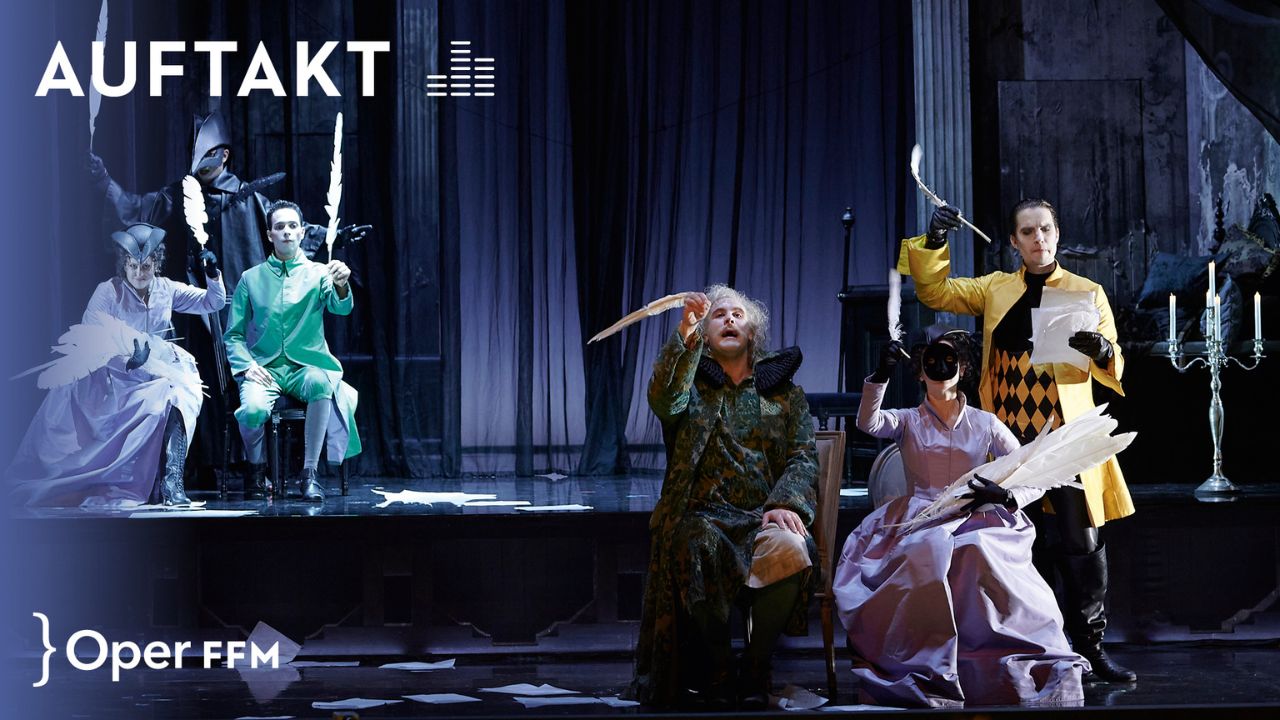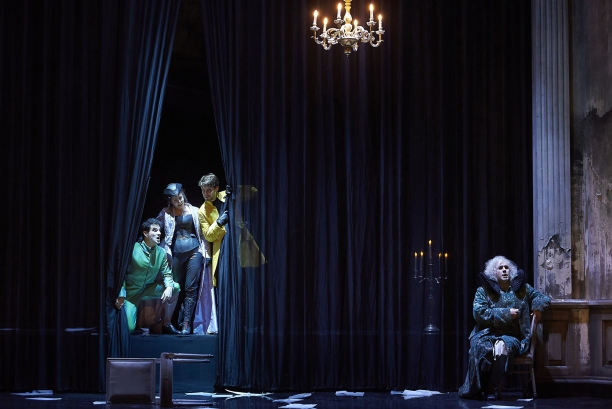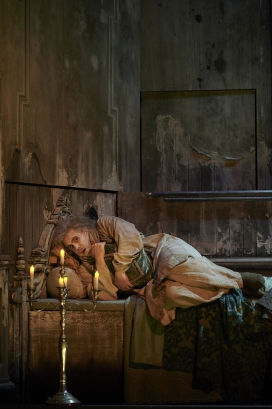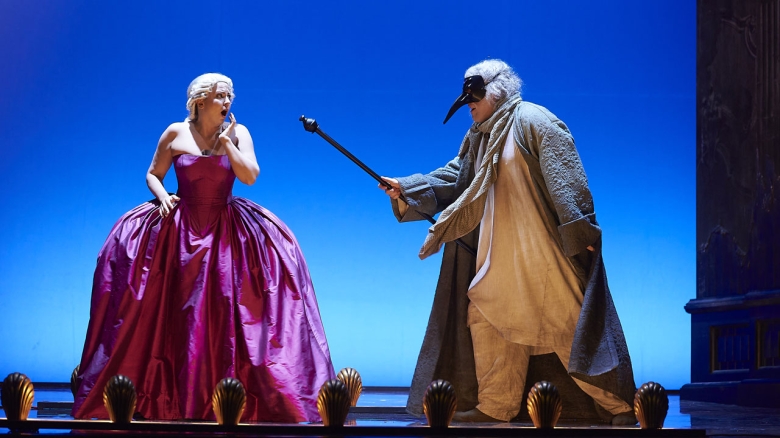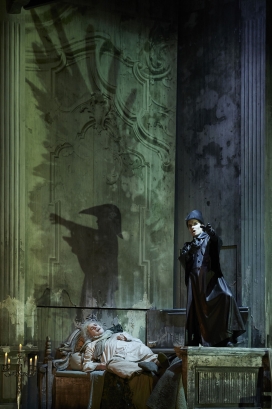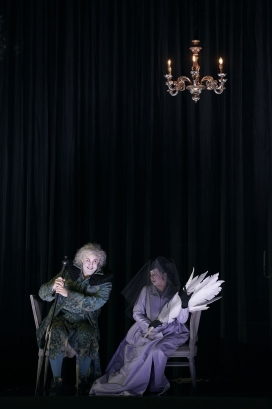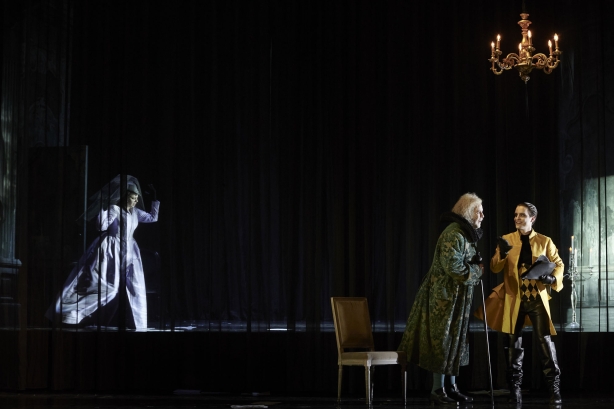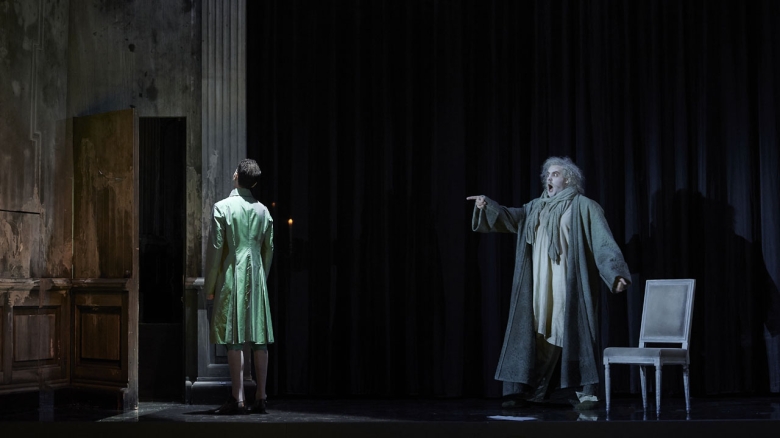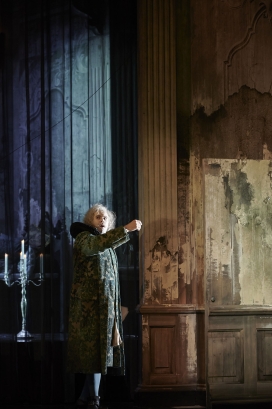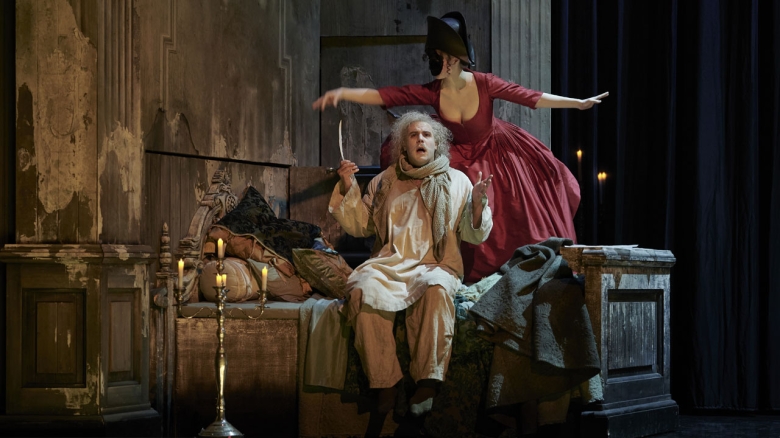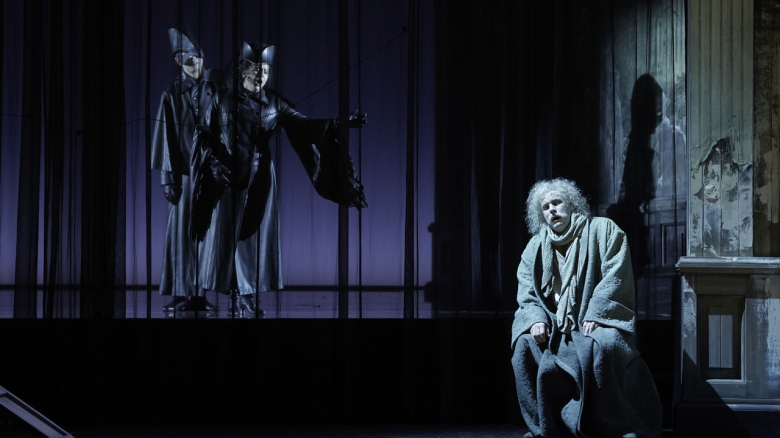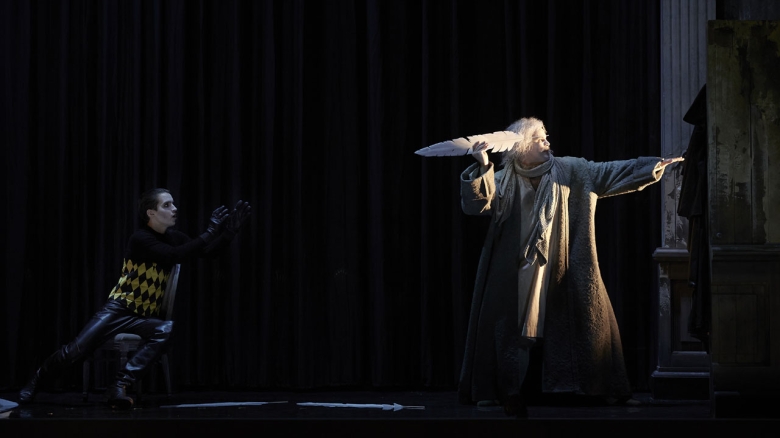Don Pasquale
Gaetano Donizetti 1797–1848
Dramma buffo in 3 acts
Libretto by Giovanni Domenico Ruffini & Gaetano Donizetti
First performed Théâtre-Italien, Paris, January 3 1843
Sung in Italian with German surtitles
Introductory talks (in German) 30 minutes before curtain up in the Bockenheimer Depot
There was a chamber music concert on September 24 inspired by this opera
Old, wealthy Don Pasquale wants to safeguard his wordly goods. He’s so cross that his nephew Ernesto wants to marry the penniless widow Norina that he orders Doctor Malatesta to find him an undemanding young bride, with whom he can father his own children and heirs. Ernesto finds out about his uncle's plans to marry. He's angry about being disinherited and writes a letter to Norina, who turns to Malatesta, who persuades her to introduce herself to Don Pasquale, posing as a possible future bride. ACT 2 Malatesta presents angelic Sofronia, alias Norina, to Pasquale, who’s so delighted he wants to marry her on the spot. A notary is quickly found. Ernesto reluctantly agrees to be best man. But as soon as the marriage contract is signed, the shy young woman turns into a Fury, who wants to go out alone, and even threatens violence. ACT 3 Pasquale forbids his spouse to go the theatre. When she tells the old man it’s his bedtime he unleashes a barrage of insults. The argument escalates, ending with the young woman boxing his ears and leaving the house. Pasquale, intent on getting a divorce, finds a note inviting his wife to a rendezvous. He and Malatesta intend to catch the bride and her lover in flagrante delicto. She denies any liaison and won’t hear a word of divorce, pretending to be outraged that Ernesto plans to marry Norina and live under her roof. The exhausted old man jumps at the chance of getting rid of his irksome wife: he gives his blessing to his nephew and Norina's union, promising them a generous dowry. Malatesta reveals Sofronia's true identity – the game’s over. Don Pasquale’s just too old to cope with the turbulence of married life.
A cantankerous old man who feels like a spring chicken, lovers, too poor to get married and a machinating doctor: Donizetti's ingredients for his last opera buffa.
Wealthy, but aging and lonely, Don Pasquale wants a wife. It infuriates him that his nephew Ernesto wants to marry Norina instead of the woman Pasquale's chosen for him. Dreaming of starting a family, he enlists Dr Malatesta's help, not realising that this crafty manipulator is double-crossing him by disguising Norina as Sofronia, his intended bride. The wedding's immediately followed by arguments and tantrums. A clip round the ear's the final straw - the old man decides to take his revenge by demanding a divorce ... He finally sees the error of his ways and gives the young couple his blessing.
Gaetano Donizetti, already quite ill when he wrote the opera, drew his inspiration from Commedia dell’Arte. The wealth of ideas in his music transformed an old confirmed bachelor, capricious young woman and Malatesta, trying to help the young lovers, into people of flesh and blood.


